Donald Sutherland’s 10 Most Iconic Roles, From ‘Hunger Games’ to ‘JFK’
Donald Sutherland, whose death at age 88 was announced Thursday by his son Kiefer Sutherland, was never nominated for an Oscar, but those acting opposite the veteran actor often were.
He might be best known to millennials and Gen Z as the dastardly President Snow of the “Hunger Games” films, whose mere glance can make your blood run cold. But for every juicy villain role, there was a corresponding film, like “Ordinary People” or “Pride and Prejudice,” where the depth of his compassion as a father nearly took your breath away.
Here are his 10 most iconic roles we will remember him by.
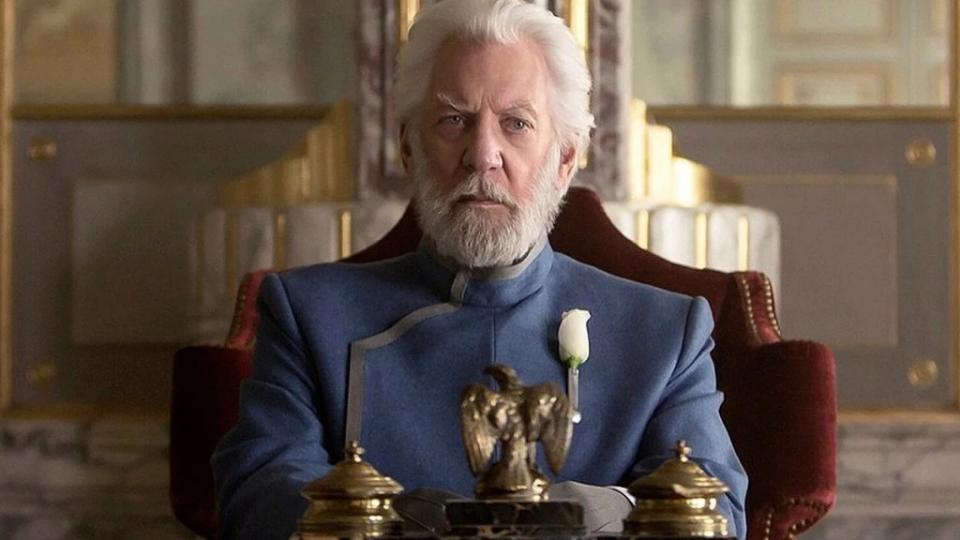
President Coriolanus Snow in “The Hunger Games” (2012 – 2015)
Who else but Sutherland could be as imperious and as cruel in the role of a dictator who orchestrates the death of dozens of children every year? And yet, despite the withering coldness, there is still a wicked sense of humor at the very end as Katniss (Jennifer Lawrence) finds a different target for her arrow. The mob he once ruled over takes care of Snow, but we’ll never forget his bitter laugh that fate — just like the odds — can sometimes be in your favor.
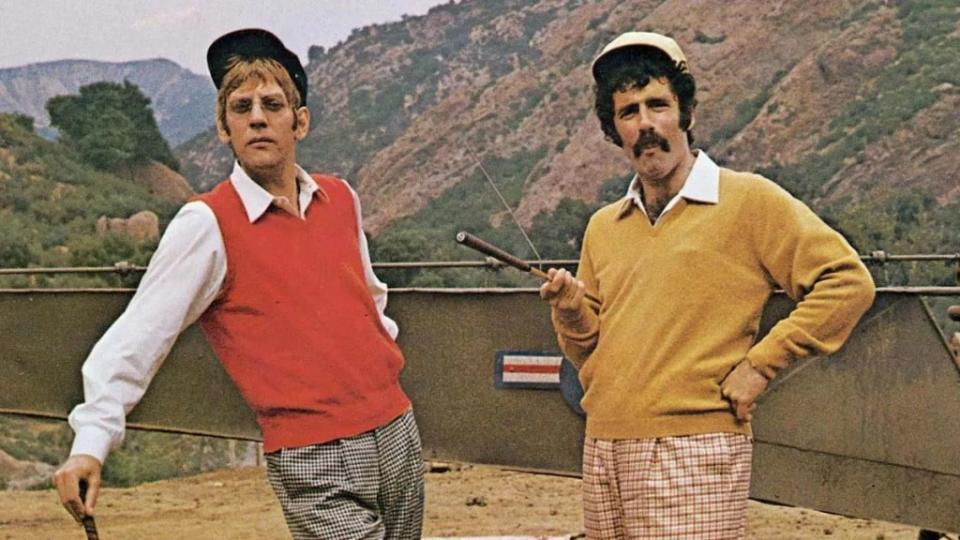
Hawkeye Pierce in “M*A*S*H” (1970)
If “The Dirty Dozen,” released in 1967, put Sutherland on the map, then “M*A*S*H” cemented his place as one of the most important and impressive actors of his generation. In Robert Altman’s masterpiece, which won the Palme d’Or and was nominated for five Academy Awards (including Best Picture), Sutherland plays “Hawkeye” Pierce, a surgeon serving in a makeshift hospital in South Korea during the war. The tone of “M*A*S*H” is decidedly anarchic, veering from wild comedy to sober interludes and back again, with Sutherland and Elliot Gould (as surgeon “Duke”) leading the charge. When Gould protests about missing olives in their martinis, Sutherland coyly responds, “We do have to make certain concessions, we’re three miles from the front line.” (On the massively popular television series that followed, the character would be played by Alan Alda.) At 35, “M*A*S*H” had made Sutherland a massive movie star. – Drew Taylor
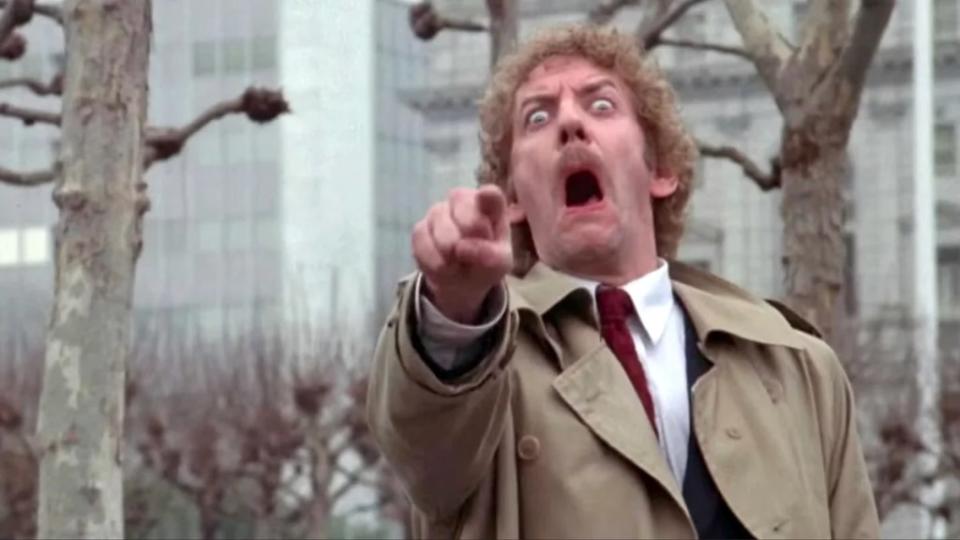
Matthew Bennell in “Invasion of the Body Snatchers” (1978)
Ostensibly a remake of Don Siegel’s 1956 movie “Invasion of the Body Snatchers” and once again based on Jack Finney’s 1955 novel “The Body Snatchers,” Philip Kaufman’s 1978 film is a perfect film, amplifying the unease and distrust of the 1970s with a niftily timeless sci-fi horror concept. Sutherland plays a San Francisco Health Department employee who starts to uncover the fact that normal people are being replaced by “pod people” – a race of evil alien doppelgängers. The whip smart script by W.D. Richter incorporates a number of era-specific flourishes – bath houses, a New Age guru played (with aplomb) by Leonard Nimoy, and the idea that being reborn as a new person is a spiritual conversion as much as it is an actual, physical one. Sutherland often played more straight-laced characters guiding audiences through a more fantastical world, which is definitely the case here, as a no-nonsense government employee trying to make sense of a quietly insidious extraterrestrial assault. It’s his steadfastness, too, that makes the ending all the more tragic when – spoiler alert for a movie that came out 46 years ago – it’s revealed that he too has been replaced by a malevolent double. Now there’s no stopping those dastardly aliens! For a story that has been remade countless times, the 1978 version, anchored by Sutherland’s outstanding performance, is clearly the best of the bunch. And if you want even more Sutherland-related alien invasion fun, check out “The Puppet Masters,” a 1994 thriller where he battles a race of alien slugs that control people, based on a 1951 novel by Robert Heinlein. It’s way less classy but a total hoot. – Drew Taylor
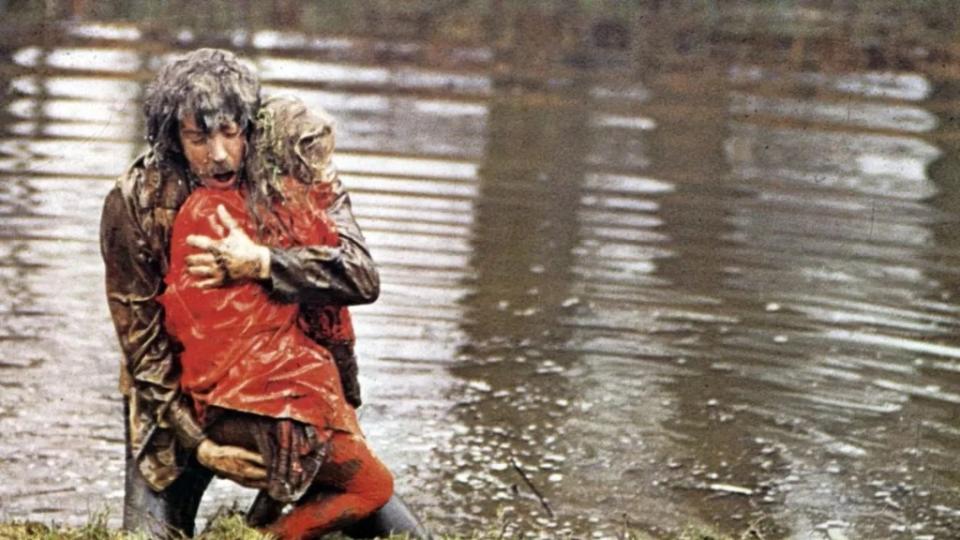
John Baxter in “Don’t Look Now” (1973)
If, for some reason, you’ve never seen “Don’t Look Now,” use Sutherland’s passing as an excuse to give it a watch. (Criterion recently released a beautiful 4K disc.) Directed by former cinematographer Nicolas Roeg and based on a short story by “Rebecca” author Daphne du Maurier, Sutherland plays a man who has just lost his daughter in a tragic accident. (The movie opens with an artful, lump-in-your-throat tragedy and doesn’t let up.) Shortly afterwards he takes a job restoring an ancient church in Venice and brings his wife (Julie Christie). He thinks it’ll be good for them. Or at least give them an opportunity to mourn in a new place. And as they are there, they are confronted with a series of strange, paranormal occurrences, including a psychic informing Christie that she can communicate with their dead daughter. There’s also a serial killer on the loose wearing a red rain slicker not unlike the one that their daughter died in. Sutherland, in some ways, has the more difficult role, since he is the one that is more outwardly straight and unaffected. But inside of the character is a sea of roiling emotion, as is evidenced in the now-classic sex scene that Roeg intercuts with Christie and Sutherland getting ready to go out – the mundane mixed with the carnal. (It’s regularly regarded as one of the greatest sex scenes of all time and not just because of persistent rumors that it was not simulated.) In the end, it’s Sutherland who has to make sense of the madness that has consumed him. Oh and it’s one of the scariest movies ever too. The making of the movie clearly had an impact on Sutherland; he named one of his children Roeg. What a picture. – Drew Taylor
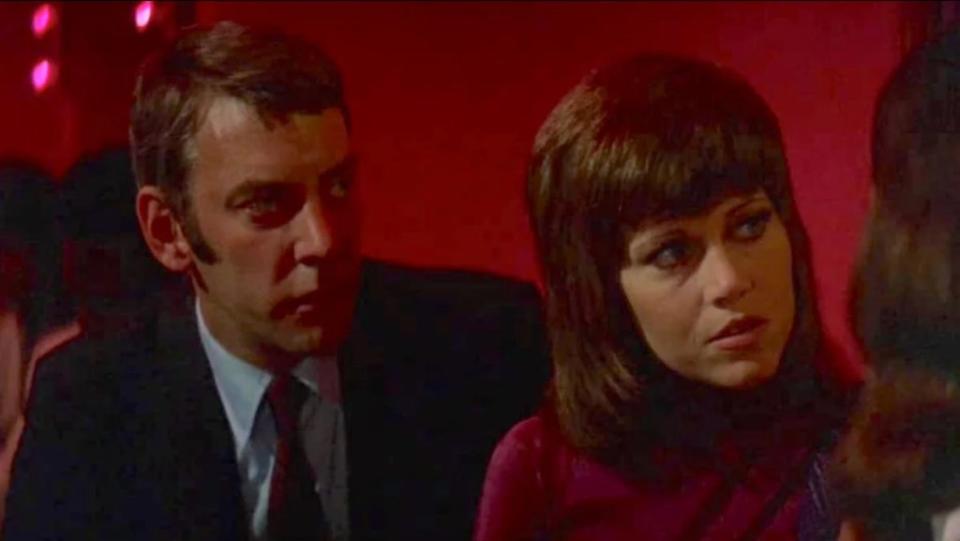
John Klute in “Klute” (1971)
Jane Fonda won her first Best Actress Oscar for her role as call girl Bree Daniels who needs protection from a stalker, but there’s a reason the film is named for Sutherland’s character: He’s the quiet, steady backbone of the movie as he navigates his duties as a cop with his personal feelings for Bree.
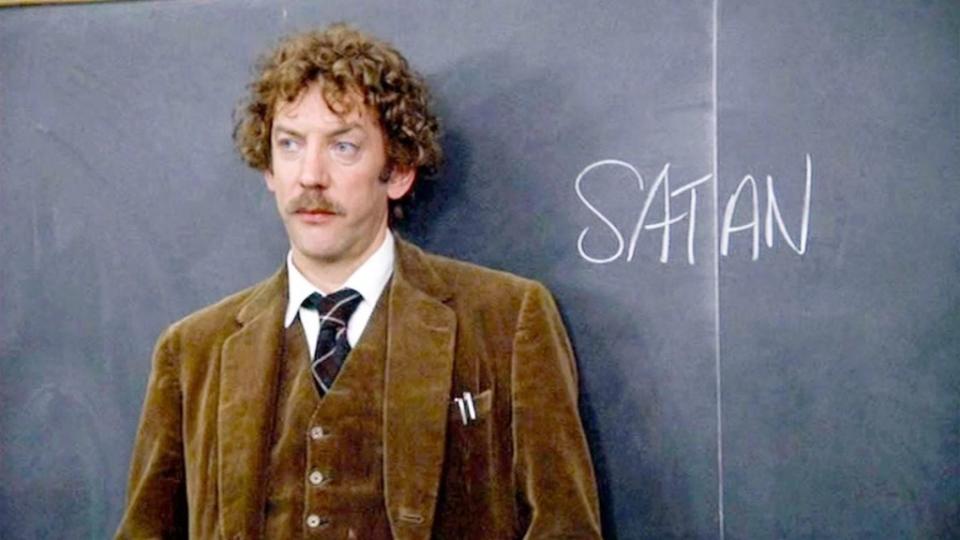
Professor Dave Jennings in “Animal House” (1978)
In 1977 Sutherland had a small role in John Landis’ anthology sketch movie “The Kentucky Fried Movie,” which was written by the team behind “Airplane,” Jim Abrahams, David Zucker and Jerry Zucker. Based on his work on “The Kentucky Fried Movie,” Landis was recommended to direct Universal’s “Animal House.” (The National Lampoon branding came from producer Matty Simmons and the fact that it was based on stories written by co-writer Chris Miller for the humor magazine.) Landis took Sutherland with him, assigning him the role of Professor Dave Jennings. Jennings was a perfect Sutherland character – square but sexy, un-intimidating but wielding power, hip but aloof – a professor who beds a young co-ed (played by Karen Allen) and, in a particularly memorable scene, shares a joint with his nervous students. When one of the kids (played by Tom Hulce) asks him, “I won’t go schizo, will I?” Sutherland purrs back, “It’s a distinct possibility.” Sutherland was as nimble and gifted a comedian as he was a dramatic actor and able to make even the smallest parts seem rich and expansive. – Drew Taylor
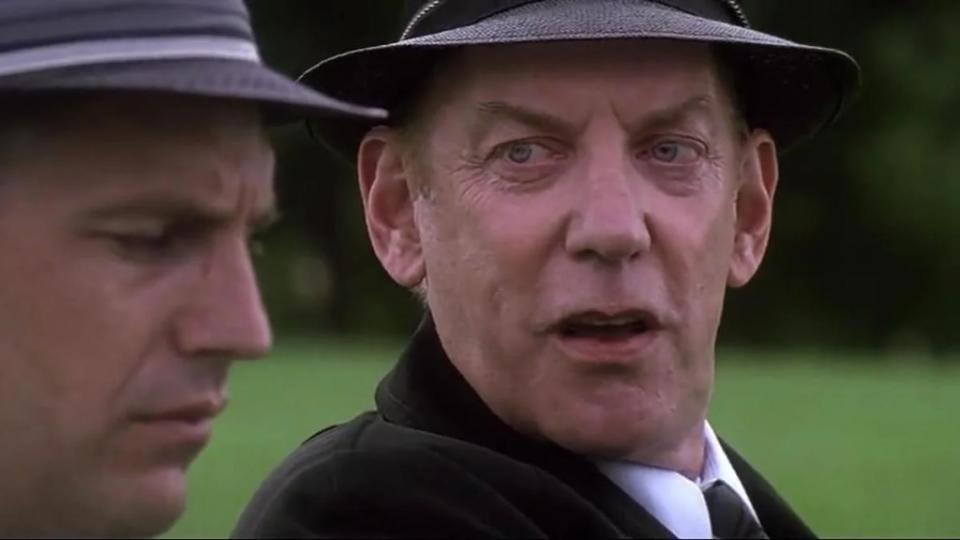
Mr. X in “JFK” (1991)
Few actors can show up for a single scene and command the entire movie, especially if the movie that they’re in is so chock full of stars that it might as well have been the 1994 opening of Planet Hollywood’s Orlando location. But that’s exactly what Donald Sutherland does in Oliver Stone’s sprawling masterpiece “JFK.” He pops up as X, a mysterious informant who walks Kevin Costner’s New Orleans district attorney Jim Garrison through the intelligence community’s response to the assassination of John F. Kennedy. The sequence is framed by Sutherland and Costner walking around a rainy Washington, D.C., backed by John Williams’ propulsive and often imitated score, is basically a monologue (Costner is nervously taking notes the whole time and only occasionally asking a stray question), putting all of the peculiarities of the murder into historical and political context. It’s hypnotic, especially backed by Stone’s unique editorial style. You remain on the edge of your seat as Sutherland attempts to straighten the knotty, cursive conspiracy narrative. Maybe it was his history in conspiracy classics like “Klute” and “Invasion of the Body Snatchers” that made him so perfect for the role; it’s undeniable that at this point in his career he had become an elder statesman. But there’s also nobody that could have delivered lines like “That’s the real question, isn’t it – why? The how and the who is just scenery for the public. Why was Kennedy killed? Who benefitted? And who has the power to cover it?” and have it really mean something. Chances are if you think about “JFK,” a three-hour historical thriller filled with some of the best performers of the time, you’re going to think about one sequence – Sutherland’s sequence. – Drew Taylor
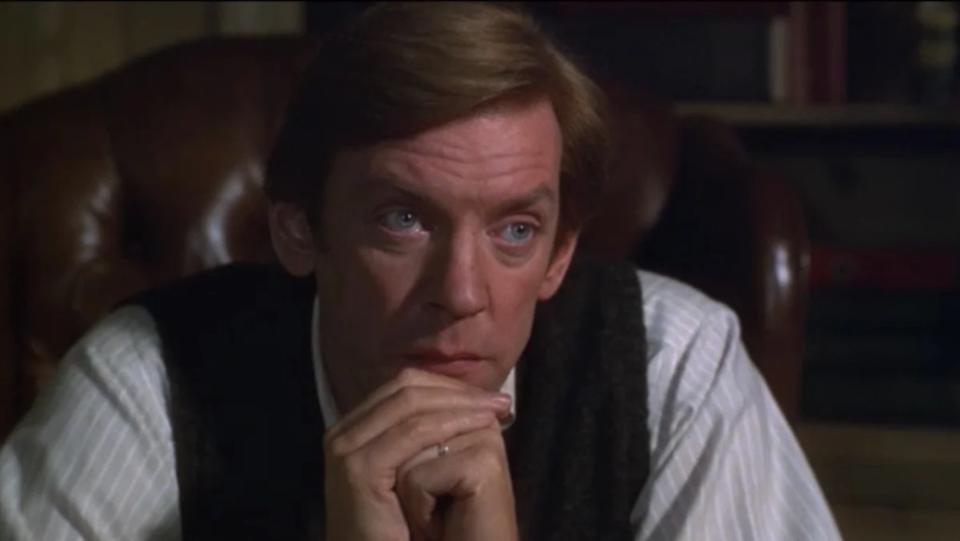
Calvin in “Ordinary People” (1980)
Mary Tyler Moore and Judd Hirsch were Oscar-nominated for their roles in Robert Redford’s Best Picture winner and Timothy Hutton deservedly won Best Supporting Actor for his performance as suicidal, guilt-ridden survivor Conrad Jarrett, who blames himself for his brother’s accidental death. But the glue holding the film together is Sutherland, who realizes he’s utterly out of his depth with both his wife and his remaining son, who have become something like enemies. If you’ve only seen Sutherland play villains, this is the movie to start with to showcase what a versatile, complex and caring actor he was.
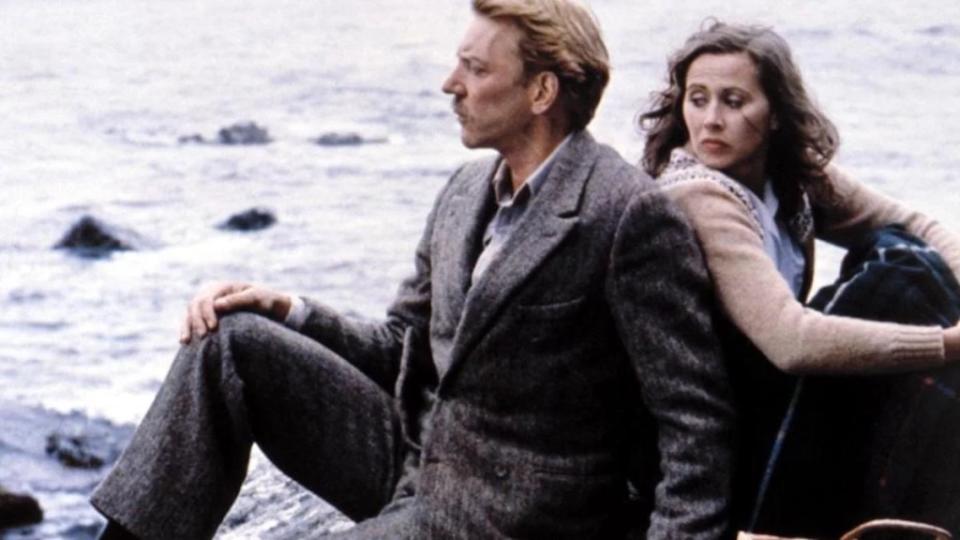
Henry Faber, aka “The Needle” in “Eye of the Needle” (1981)
In this thriller, based on the novel by Ken Follett, Sutherland is dashing and deadly as a Nazi spy whose mission is compromised when he falls for a beautiful, lonely — and surprisingly resourceful — Englishwoman, played by Kate Nelligan. One of his most underrated roles.
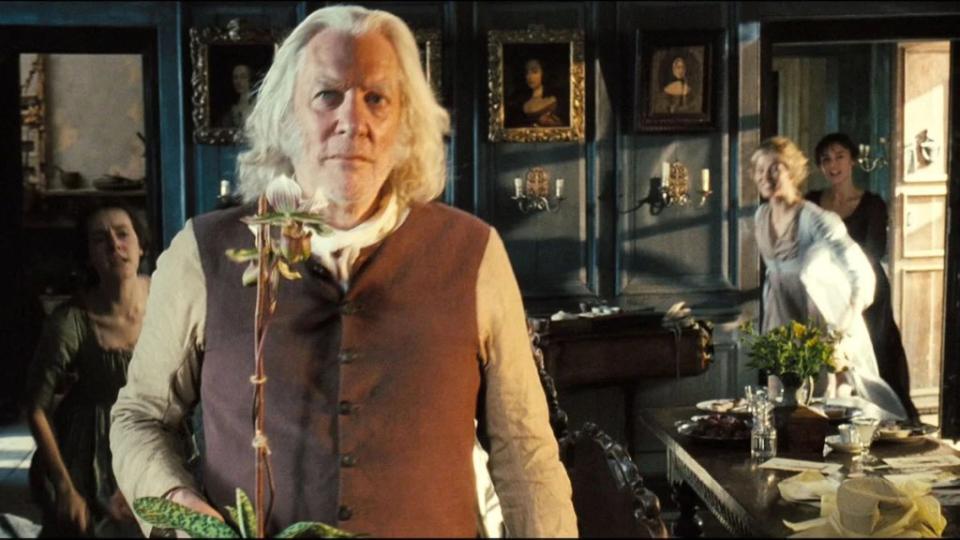
Mr. Bennet in “Pride and Prejudice” (2005)
As the father of a house full of girls, Mr. Bennet mostly sits back and lets the chaos happen, leaving his wife to deal with the particulars of finding husbands for all of their daughters.
When Lizzie (Keira Knightley) rejects a potential suitor because she doesn’t love him, her father reveals not only that she’s his favorite, but that he doesn’t give a damn about following the expectations of his wife, or society.
“An unhappy alternative is before you, Elizabeth,” he tells her. “From this day you must be a stranger to one of your parents. Your mother will never see you again if you do not marry Mr. Collins, and I will never see you again if you do.”
The post Donald Sutherland’s 10 Most Iconic Roles, From ‘Hunger Games’ to ‘JFK’ appeared first on TheWrap.


